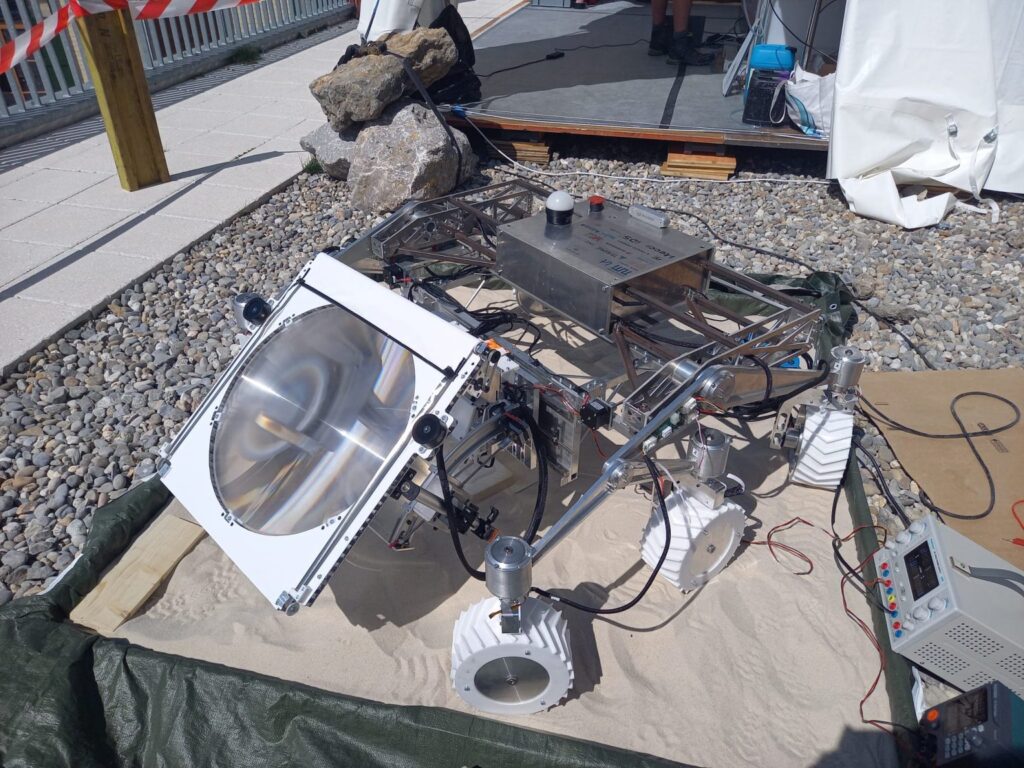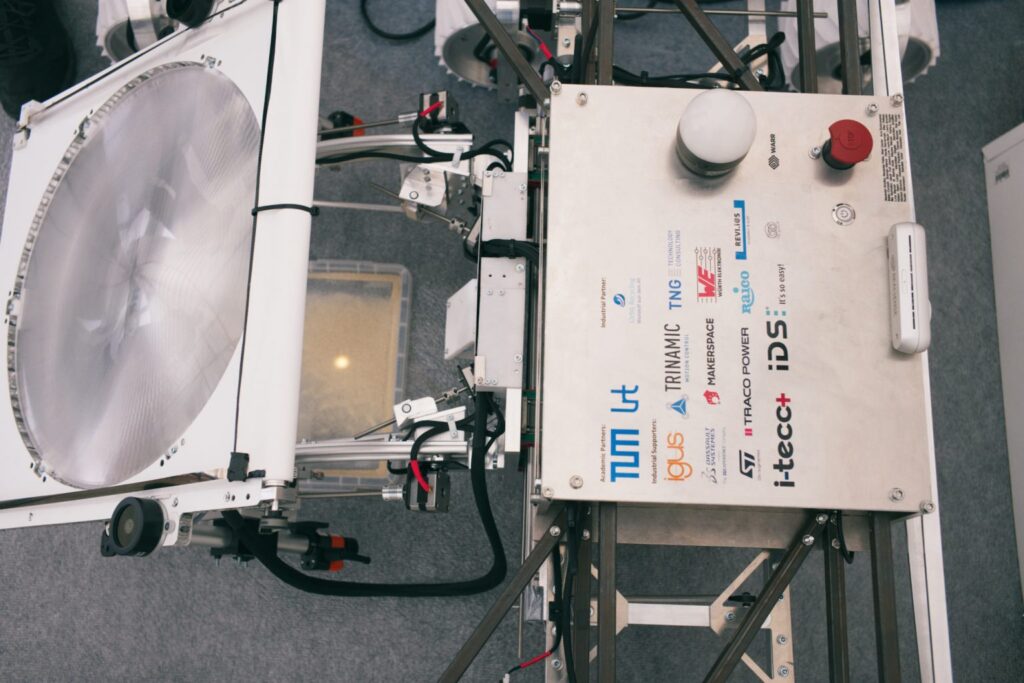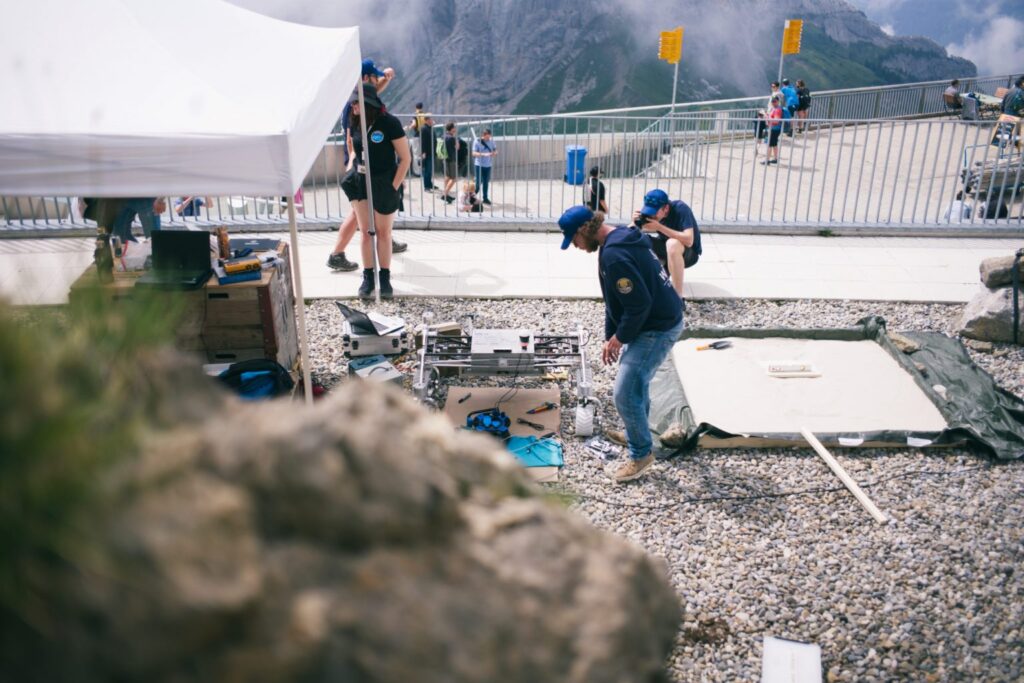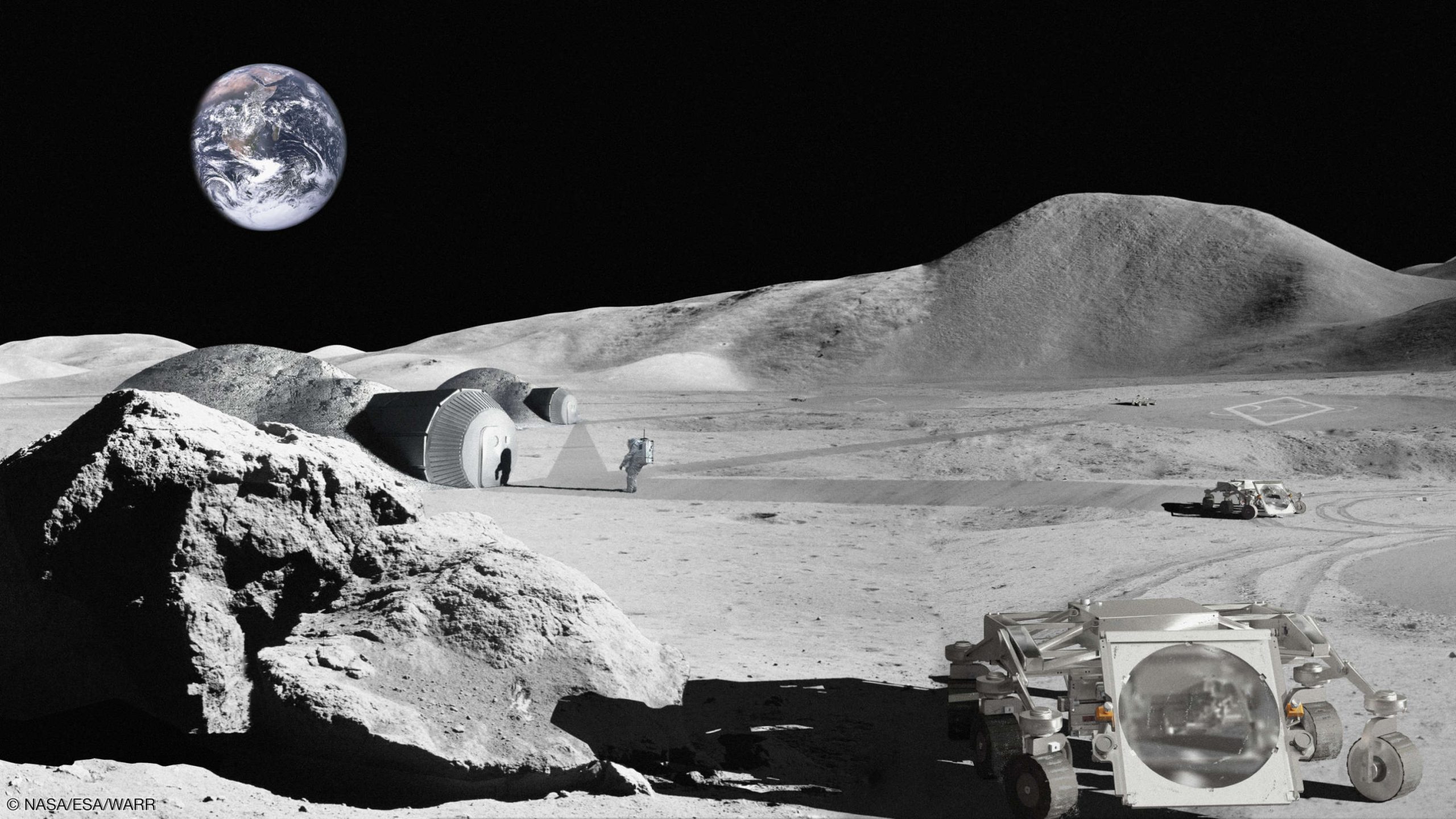
Project REBELS
Project REBELS stands for Rover for the Establishment of Bases and Encampments on the Lunar Surface. Within the framework of the global exploration roadmap, outposts on the lunar surface would be a valuable stepping stone in the goal to explore Mars.
A lunar outpost would be beneficial in reducing the risk and cost of future manned missions. By taking advantage of in-situ resource utilization, the total amount of necessary fuel, supplies, and weight can be reduced at the initial launch, making projects more feasible.
Our mission is inspired by ESA’s Moon Village concept, which seeks to create a lunar base for humans that would serve as a base for future space missions. Seeing as space exploration rovers and sintering techniques are already relatively well-developed, the challenge lies in the intersection between the two.
Vision
Living on the Moon: An image long depicted in science fiction films and books. These films and movies inspired and fascinated us since we were kids. And today we are closer than ever to making this image become real. We believe that a permanent establishment on the lunar surface is just the next logical step in space exploration. We share this belief with many others. All around the world, space agencies like NASA or ESA as well as various companies are working on concepts for a permanent human basis on the moon. This strengthens us in our motivation of being part of this historical process.
Mission
Our rover is designed to be a mobile building machine. Thanks to the mounted solar sintering device, we can sinter Regolith, a material that can be found everywhere on the lunar surface. Thus, we can work with the concept of In-Situ-Resource Utilization (ISRU). This enables us to establish a sustainable building procedure. Building materials don’t need to be brought from Earth, which allows us to save on transportation costs.
Concept
Using local soil and the energy of the sun, a process called sintering is applied to harden the underlying soil. To achieve this, we use a special wide-area lens and an adapted rover design.
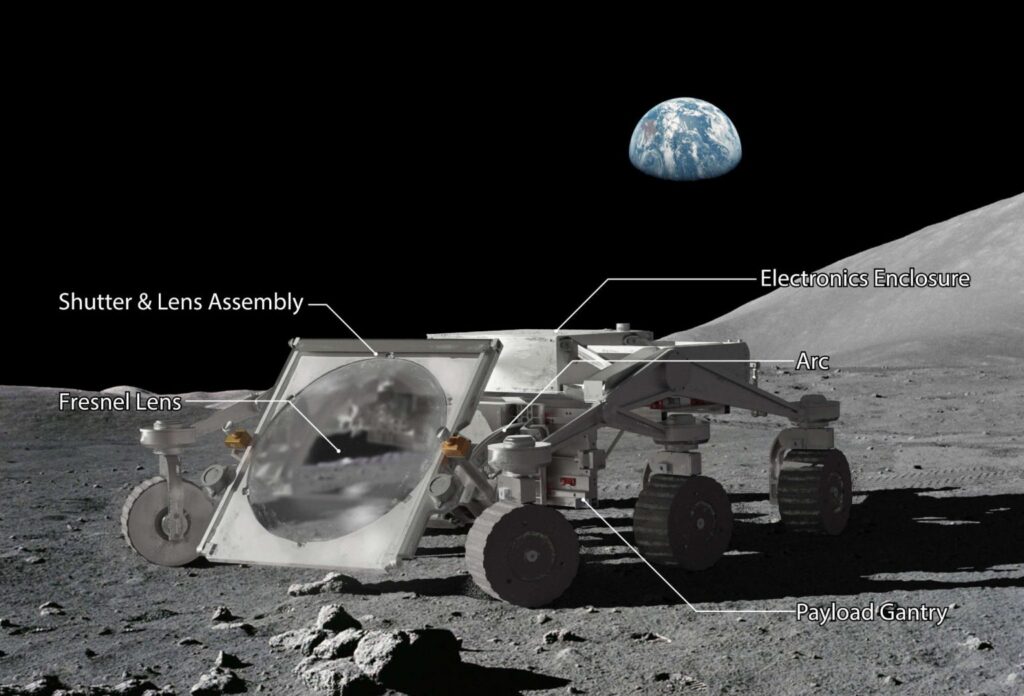
Industrial Application
With an increasing interest in infrastructure building in extreme regions such as deserts, our recent rover developments in the domain of automated solar sintering are well-suited to overcome current shortcomings in the construction industry.
By using rovers for solar sintering with in-situ resource utilization, basic infrastructure can be produced more cost-effectively. This is due to reduced construction material costs, and the lack of human labor and their associated costs during the construction time. Such services are particularly of interest to those seeking to develop new properties and infrastructure, whether that be by governments, government-owned companies, or private interests.
As for a long term vision, we seek to expand our regions of operations to more areas. This includes non-equatorial regions on Earth, as well as sites beyond Earth. One obvious use case for such extraterrestrial habitat building is ESA’s Moon Village. However, other planets could be candidates, such as Mars in the scope of SpaceX’s future plans.
Our Progress
An important step towards the realization of our project was the participation at IGLUNA 2021, a project organized by Space Innovation (former Swiss Space Center) in collaboration with ESA and many industrial partners.
Until we reach our final goal of building habitats and infrastructure on the moon, we plan to use the rover’s advantages on earth as well. Many application fields are possible: for regions with extreme conditions, like for example deserts, our rover can be sent to sinter basements or pipelines. This would allow a more sustainable building process and reduce the need for human personnel.
In the summer of 2021, Project REBELS demonstrated and tested LARSS in the IGLUNA field campaign, which took place on mount Pilatus in Lucern. The harsh environment of mount Pilatus, as well as the distance to the control station on the ground provided an excellent opportunity to remotely test the functionality of LARSS.
IGLUNA
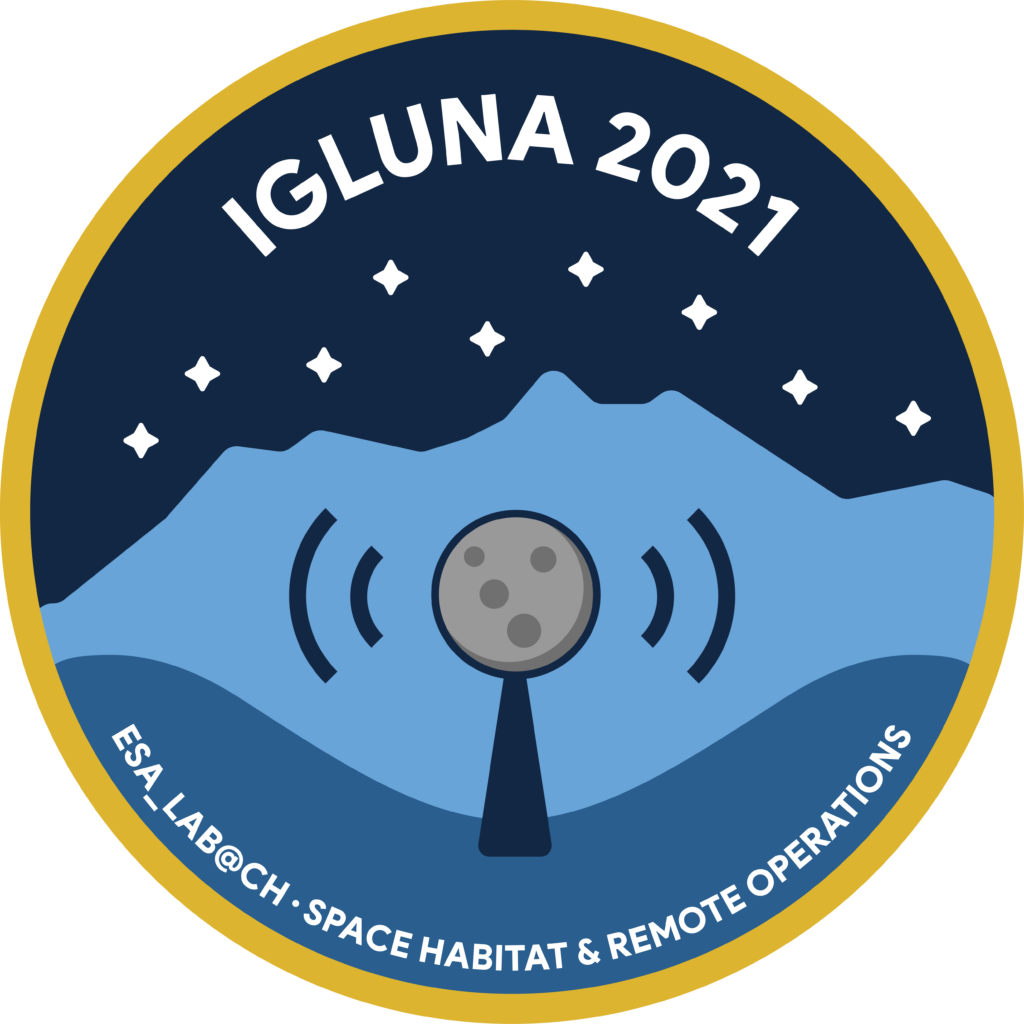
IGLUNA offers students an opportunity to participate in an international, collaborative, multidisciplinary project on a visionary space topic, inspiring and training the next generation of experts while creating a network between universities, industry, research organizations, and ESA at the European level and abroad, including space and non-space actors.

